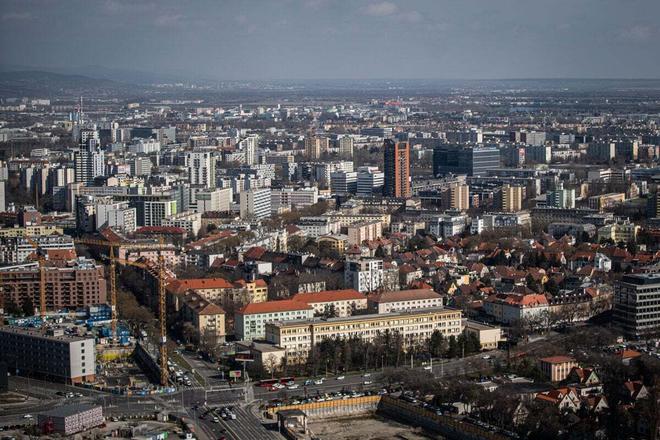The new Energy Profiles of Slovak Households survey shows that more than half of Slovaks are potentially jeopardised by the bad socio-economic situation, and almost half cannot afford an unexpected expense of €400. The survey was carried out by TOMÁŠ CHABADA and JAN KRAJHANZL from the Czechoslovak Research Institute 2050.
The survey divided Slovakia into six energy profiles. Three of them - the poorer residents of cities, villages and small towns - have low income, the refusal to aid Ukraine militarily, and cars older than 11 years on average in common. A total of 56 percent of the population falls into these categories. In an interview with the daily Sme, the researchers explain who these groups are and why it is important to know about them.
The research was carried out at the turn of January and February 2023 on a representative sample of 1,000 respondents via a questionnaire.
In the interview you'll find out which households cannot afford to pay €400 as an unexpected expense, why people would hand out the worst grades to politicians for their handling of the energy crisis, whether the crisis can radicalise people, and how to talk to people on the fringes of society.
You were trying to find out how many people could afford an unexpected expense of €400. Why are the results not good news for Slovakia?
Jan Krajhanzl (JK): This would be a problem for 45 percent of Slovaks, which seems like a fairly high percentage when we consider what an unexpected expense of €400 can be. It shows that households lack disposable cash, and when their washing machine or car breaks down or their roof collapses, it suddenly means a significant social threat. And this is often when these people find themselves falling into unfair loans. At the same time, there are also people who may not be outright poor, such as a young family with a mortgage or a widow living alone.
Tomáš Chabada (TC): This problem mostly concerns older residents and people with poorer education. Up to 60 percent ofthe elderly cannot afford such an extraordinary expense. The life situation of these people is then further reflected in their attitudes, when they consider themselves to be democrats to a much lesser extent or reject military aid to Ukraine more strongly.
Your survey placed every inhabitant of Slovakia into one of six energy profiles. What do you consider the most important finding?
JK: First, the size of a municipality where people live and their income is very closely related to what they heat their homes with and how much they drive their cars. We also found that people's attitudes toward democracy and military aid to Ukraine are also related with what they heat with, their income, and where they live.
Why is this finding crucial?
JK: When we see how closely these things are connected, it looks fundamental in terms of future solutions. You need to know the life situation of individual energy groups and try to understand them, including why they are reserved about certain things.
When we combine the poorer population groups from the energy profiles, we get 56 percent. Are these people at risk of energy poverty?
TC: In order to say that our research should have been set up differently and data from energy suppliers would have been necessary. However, we can see that three of the six profiles are threatened by a worse socio-economic situation, a potentially even worse energy situation.
Politicians have failed in their evaluation of the energy crisis solutions. More than half of the people surveyed would give them the worst grade. Why would they do so when the government capped energy prices for households and the rise in prices has affected them much less than in other European countries?


 (source: SME - Jozef Jakubčo)
(source: SME - Jozef Jakubčo)